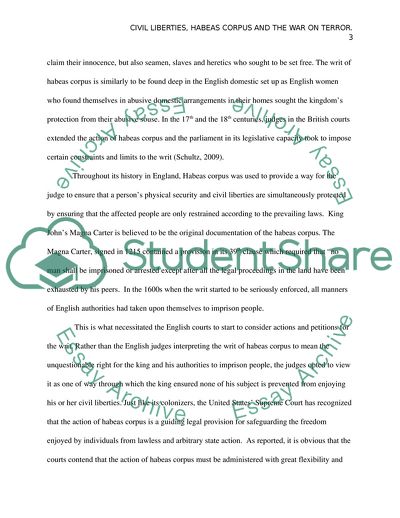Cite this document
(Civil Liberties, Habeas Corpus, and the War on Terror Assignment - 9, n.d.)
Civil Liberties, Habeas Corpus, and the War on Terror Assignment - 9. https://studentshare.org/history/1832734-civil-liberties-habeas-corpus-and-the-war-on-terror
Civil Liberties, Habeas Corpus, and the War on Terror Assignment - 9. https://studentshare.org/history/1832734-civil-liberties-habeas-corpus-and-the-war-on-terror
(Civil Liberties, Habeas Corpus, and the War on Terror Assignment - 9)
Civil Liberties, Habeas Corpus, and the War on Terror Assignment - 9. https://studentshare.org/history/1832734-civil-liberties-habeas-corpus-and-the-war-on-terror.
Civil Liberties, Habeas Corpus, and the War on Terror Assignment - 9. https://studentshare.org/history/1832734-civil-liberties-habeas-corpus-and-the-war-on-terror.
“Civil Liberties, Habeas Corpus, and the War on Terror Assignment - 9”. https://studentshare.org/history/1832734-civil-liberties-habeas-corpus-and-the-war-on-terror.


